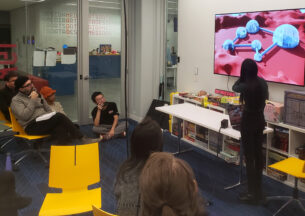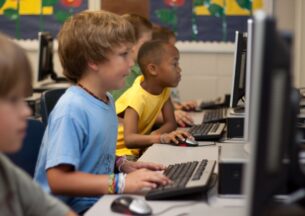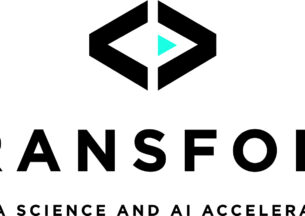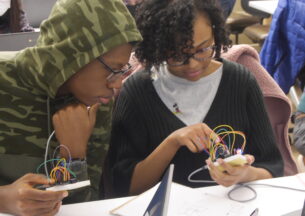Nicole Immorlica (Microsoft Research) - Data, the Fundamental Particle of Interaction
Most economic models of interaction assume that agents hold beliefs in the form of priors, or probability distributions over a state of the world, which guide their behavior. In this talk, I consider a model in which beliefs are built off data or anecdotes that are drawn from a distribution parameterized by the state of the world and study how this impacts outcomes. I first discuss a model where agents communicate by sharing anecdotes. This mode of communication results in higher noise and bias when agents have differing preferences, giving rise to informational homophily and polarization. The results have implications for content regulation in social networks. Next, I discuss a model where a principal selectively discloses anecdotes to facilitate social learning. Here I will show that an appropriate information structure, chosen ex ante, can incentivize exploration and thus avoid the herding problems common in such social learning settings. The results have implications for the selection of reviews in online recommendation systems.
Based on joint work with Nika Haghtalab, Brendan Lucier, Jieming Mao, Markus Mobius, Divya Mohan, Alex Slivkins, and Steven Wu.
Speakers

Nicole Immorlica
Nicole Immorlica is a senior principal researcher at Microsoft Research New England (MSR NE) where she leads the economics and computation group. She is also chair of SIGecom, the ACM Special Interest Group on Economics and Computation, which fosters world-class research in this interdisciplinary field through conferences, awards, and mentorship programs. She received her BS in 2000, MEng in 2001 and PhD in 2005 in theoretical computer science from MIT in Cambridge, MA. She joined MSR NE in 2012 after completing postdocs at Microsoft in Redmond, WA and Centruum vor Wiskunde en Informatics (CWI) in Amsterdam, Netherlands, and a professorship in computer science at Northwestern University. Nicole’s research interest is in the design and operation of sociotechnical systems. Using tools and modeling concepts from both theoretical computer science and economics, Nicole hopes to explain, predict, and shape behavioral patterns in various online and offline systems, markets, and games. She is known for her work on social networks, matching markets, and mechanism design. She is the recipient of a number of fellowships and awards including the Sloan Fellowship, the Microsoft Faculty Fellowship and the NSF CAREER Award. She has been on several boards including SIGACT, the Game Theory Society, and INFORMS Auction and Market Design Section; is an associate editor of Operations Research and Games and Economic Behavior, and was program committee member and chair for several ACM, IEEE and INFORMS conferences in her area.













